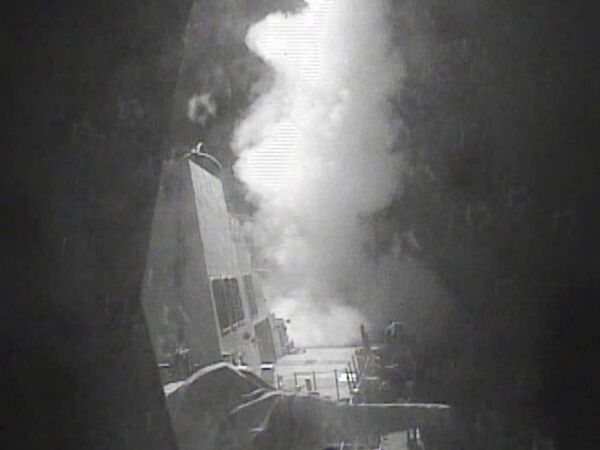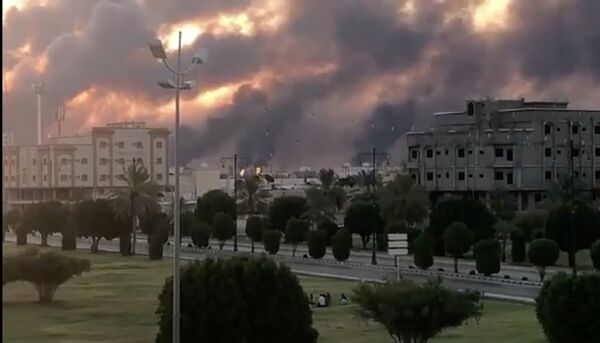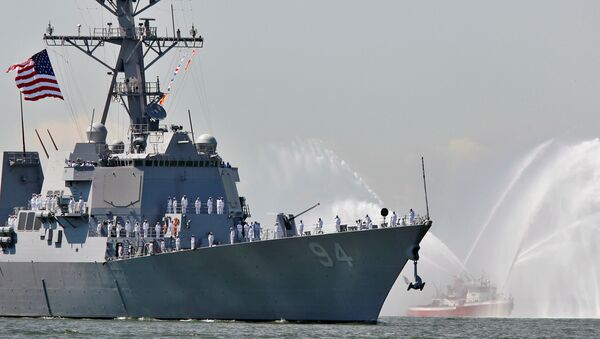The US has redeployed the USS Nitze destroyer to the northeast coast of Saudi Arabia in a bid to "plug the gap" in Saudi Arabia's air defences that was allegedly used in the 14 September raid on its oil facilities, CBS reported. The redeployment comes in line with previous allegations from Washington and Riyadh that the attack came from Iran to the north, rather than from Yemen in the southwest.
The USS Nitze has an Aegis launch system on board that is capable of firing both SM-3 missiles to serve as air defence, and Tomahawk missiles as a strike capability. The latter's range would allow the Nitze to deliver strikes anywhere in Iran, if such an order is issued.

The redeployment comes soon after US President Donald Trump gave a nod to sending a "moderate" military contingency to the region in a bid to protect its allies there, specifically Saudi Arabia, from possible future Iranian attacks. The decision was made in the wake of both the US and Saudi Arabia accusing Iran of the recent strikes on Saudi Aramco facilities, which were claimed by Yemen’s Houthi militants.
Iran has vehemently denied the accusations from Washington and Riyadh. Foreign Minister Javad Zarif has accused the US of trying to divert attention from the real problems in the region and warned that any military strike against Tehran would spark an "all-out-war" against the aggressor. The minister also demanded that Riyadh provide Tehran with access to the remnants of drones and missiles used in attack, which the Saudi Defence Ministry has used to assert Iran's alleged involvement in the incident.

The attacks, which took place on 14 September, dealt severe damage to Saudi Aramco's refineries, essentially halving the country's daily crude output for days. The incident sent oil prices soaring, along with shares in oil companies, amid fears of crude shortages, but Riyadh hopes to restore its oil production to pre-attack levels by the end of September.
Saudi Aramco facilities have been attacked by Yemeni Houthi drones and missiles in the past, but these have never been as successful as this past incident. Head of the Houthi political council Mahdi al-Mashat announced the cessation of attacks against Saudi Arabia on 20 September and urged Riyadh to do the same in Yemen, vowing to end the self-imposed ceasefire if Saudi Arabia ignores the call.



